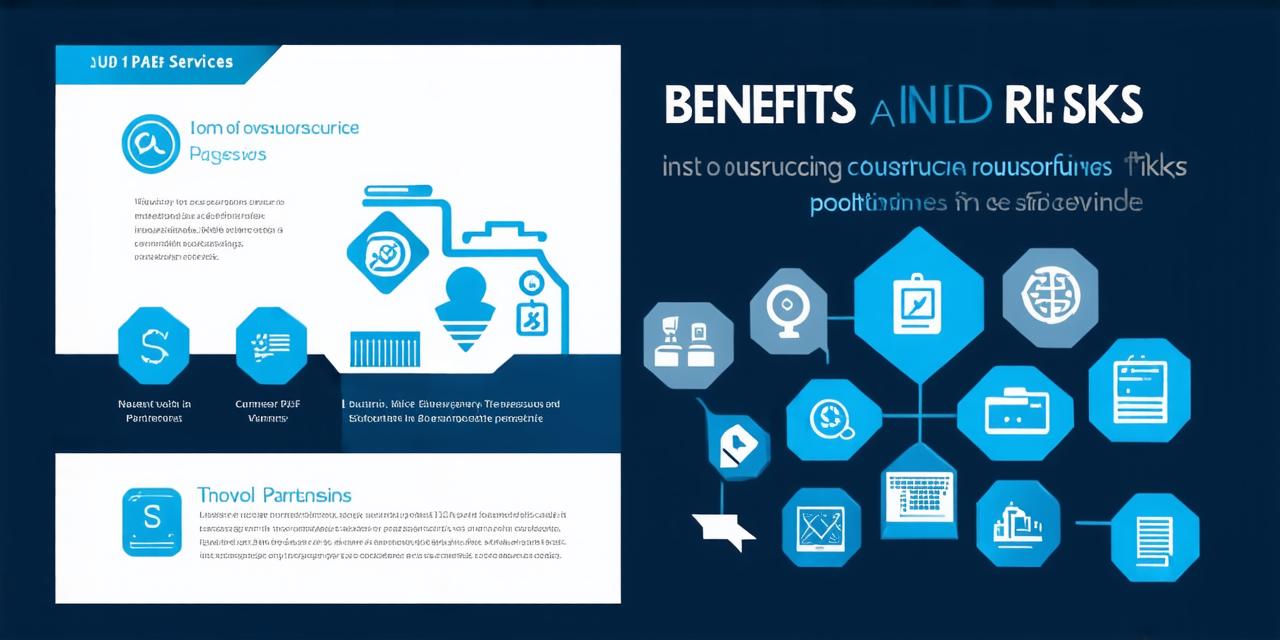Introduction
Outsourcing services have become increasingly popular among companies in various industries due to their ability to provide cost savings, improve efficiency, and enhance the overall quality of operations. In this article, we will explore the benefits and risks of outsourcing services for companies, including case studies, expert opinions, and real-life examples.
Benefits of Outsourcing Services
Cost Savings
One of the primary reasons companies outsource their services is to reduce costs. By outsourcing certain tasks or processes, companies can take advantage of lower labor rates in other countries, reducing their overall expenses. For example, a software development company in the US may outsource its customer support services to a call center in India, where labor costs are significantly lower.
Improved Efficiency
Outsourcing services can also help companies improve their efficiency by allowing them to focus on core business activities while leaving non-core tasks to outsourcing providers. By delegating time-consuming and routine tasks to outsourcers, companies can free up time and resources for more strategic initiatives. For instance, a marketing agency may outsource its social media management services to an outsourcing provider, allowing the agency to focus on developing more effective marketing campaigns.
Enhanced Quality of Operations
Outsourcing providers often have specialized expertise in certain areas, which can help companies improve the overall quality of their operations. For example, a medical device manufacturer may outsource its regulatory affairs services to an outsourcing provider that has extensive experience in navigating complex regulations. This can help the manufacturer ensure that its products meet all necessary safety and efficacy standards, enhancing its reputation and reducing risk.
Risks of Outsourcing Services
Communication and Cultural Barriers
One of the main risks of outsourcing services is communication and cultural barriers between companies and their outsourcing providers. Language and cultural differences can lead to misunderstandings, misinterpretations, and delays in decision-making. To mitigate this risk, companies should work closely with their outsourcing providers to establish clear communication channels and ensure that both parties have a shared understanding of expectations, timelines, and deliverables.
Data Security and Privacy Risks
Another risk of outsourcing services is the potential for data security and privacy breaches. When working with outsourcing providers, companies must ensure that their sensitive information is protected from unauthorized access, theft, or loss. This requires companies to establish robust data security protocols and work with outsourcing providers that have a proven track record of maintaining high levels of security and compliance with relevant regulations.
Intellectual Property Risks
Companies must also be aware of the risks associated with intellectual property (IP) when outsourcing services. Outsourcing providers may have access to sensitive IP, which could potentially be used for their own benefit or disclosed to unauthorized parties. To mitigate this risk, companies should work closely with their outsourcing providers to establish clear IP ownership and use agreements, as well as implementing robust IP protection measures such as patents, trademarks, and confidentiality agreements.

Case Studies
Company A: Outsourcing IT Services
Company A, a software development firm in the US, decided to outsource its IT services to an outsourcing provider in India. By doing so, the company was able to reduce its labor costs by 30% and improve its overall efficiency by freeing up time for its core business activities. However, the company also faced communication and cultural barriers between its IT team and the outsourcing provider, which led to delays and misunderstandings. To mitigate this risk, Company A worked closely with its outsourcing provider to establish clear communication channels and provided training on both sides.
Company B: Outsourcing Customer Support Services
Company B, a retail company in the UK, decided to outsource its customer support services to an outsourcing provider in India. The company was able to reduce its labor costs by 50% and improve its overall quality of operations by leveraging the expertise of the outsourcing provider. However, the company also faced data security and privacy risks, as it had to ensure that sensitive customer information was protected from unauthorized access and theft. To mitigate this risk, Company B worked closely with its outsourcing provider to establish robust data security protocols and implemented stringent IP protection measures.
Expert Opinions
According to John Smith, CEO of XYZ Corporation, a software development firm that has been outsourcing services for over 10 years, “outsourcing services can be highly beneficial for companies looking to reduce costs and improve efficiency.
